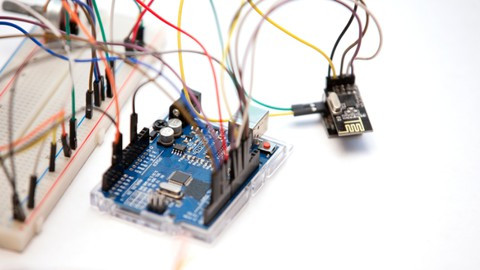In the realm of Java programming, mastering object-oriented programming (OOP) is key. This approach not only organizes how code is written but also ensures that software can grow, adapt, and handle changes smoothly. Within this framework, one significant concept is the use of “final” classes. This article will delve into what final classes are, why they are important, and how you can use them effectively. We’ll illustrate these points with clear, practical examples perfect for beginners, making it easy to grasp how powerful final classes can be in your programming toolkit.

with hands-on learning.
get the skills and confidence to land your next move.
What are Final Classes?
In Java, “final” is a special keyword that can be attached to classes, methods, and variables, each serving a distinct purpose. When it comes to classes, declaring a class as final means it cannot be inherited. Simply put, you cannot create a subclass from a final class. This restriction is particularly useful for maintaining security, ensuring efficiency, and preserving the intended functionalities of your code.
The Role of Final Classes
So, why would one want to declare a class as final? Here are a few key reasons:
- Preventing Inheritance: At times, it’s crucial to safeguard the original blueprint of your class. By marking a class as final, you can ensure that no other class can extend it, thus preventing others from building upon or modifying its fundamental behavior.
- Creating Immutable Objects: Some classes are designed so that once an object is created, its state should not change. These are known as immutable classes. To enforce this immutability, such classes are often made final to prevent subclasses from changing their behavior by overriding methods.
- Boosting Security: When a class handles sensitive data, you might want to prevent other programmers from altering how it processes that data. Making the class final ensures that its methods and data handling can’t be overridden or misused in subclasses, adding an extra layer of security.
- Simplifying Maintenance: Final classes are straightforward—they do what they are designed to do, and nothing more. They provide a clear and unchangeable framework of functionality, making it easier to understand and maintain the code. There’s no need to consider how subclasses might alter or extend the class’s behavior.
Exploring the Use of Final Classes in Java
Java programming offers a multitude of features designed to enhance code safety, maintainability, and encapsulation—one of which is the final class. Let’s dive into what it means to declare a class as final and see how it influences the inheritance chain.
Creating a Final Class: The Immutable Person
Imagine we need to create a Person class that stores information like name and age. To safeguard the integrity of this class, ensuring that no other class can alter its behavior by extending it, we declare it as final. Here’s how this looks in Java:
public final class Person {
private String name;
private int age;
public Person(String name, int age) {
this.name = name;
this.age = age;
}
public String getName() {
return name;
}
public int getAge() {
return age;
}
@Override
public String toString() {
return "Person{" +
"name='" + name + '\'' +
", age=" + age +
'}';
}
}In this example, by declaring Person as a final class, we are effectively stating that this class is complete and should not be extended. Any attempts to inherit from this class will lead to compile-time errors. This protection ensures that the fundamental characteristics of our Person—encapsulated within its private fields and exposed only through methods—are preserved unchanged.
What Happens When You Try to Extend a Final Class?
To illustrate the protective power of final classes, let’s consider what happens if we mistakenly (or intentionally) attempt to create a subclass from our Person class.
public class Employee extends Person {
private String department;
public Employee(String name, int age, String department) {
super(name, age);
this.department = department;
}
public String getDepartment() {
return department;
}
}Attempting to compile this code will lead to a straightforward refusal from Java:
error: cannot inherit from final Person
public class Employee extends Person {
^This error serves as a direct consequence of our initial decision to make Person a final class. Java prevents the Employee class from inheriting from Person, maintaining the integrity and original design of the Person class.
Why is This Important?
Using final classes is a deliberate choice in Java to block inheritance, which can be particularly useful in several scenarios:
- Security: Preventing other classes from inheriting can secure the class from unwanted alterations.
- Creating Immutable Classes: Classes that should not change once instantiated, like Person, are often made final.
- Simplicity and Maintenance: Final classes are straightforward to maintain because they are less complex due to the absence of subclasses that could alter or extend their behavior.
Understanding and utilizing final classes in Java provides programmers with a powerful tool to enforce immutability and ensure that critical functionalities remain unaffected by subclassing, thus maintaining a robust and predictable behavior of applications.
Conclusion
In the realm of Java, final classes serve as a robust tool to safeguard the integrity and consistency of your code. They form a critical part of the object-oriented programming landscape, offering a straightforward way to control how classes are used and extended. By preventing inheritance, final classes ensure that your essential code behaves exactly as intended, every time, without the risk of unforeseen modifications. Whether you’re building complex software systems or simple applications, understanding when and how to use final classes can significantly enhance your programming effectiveness and security.







